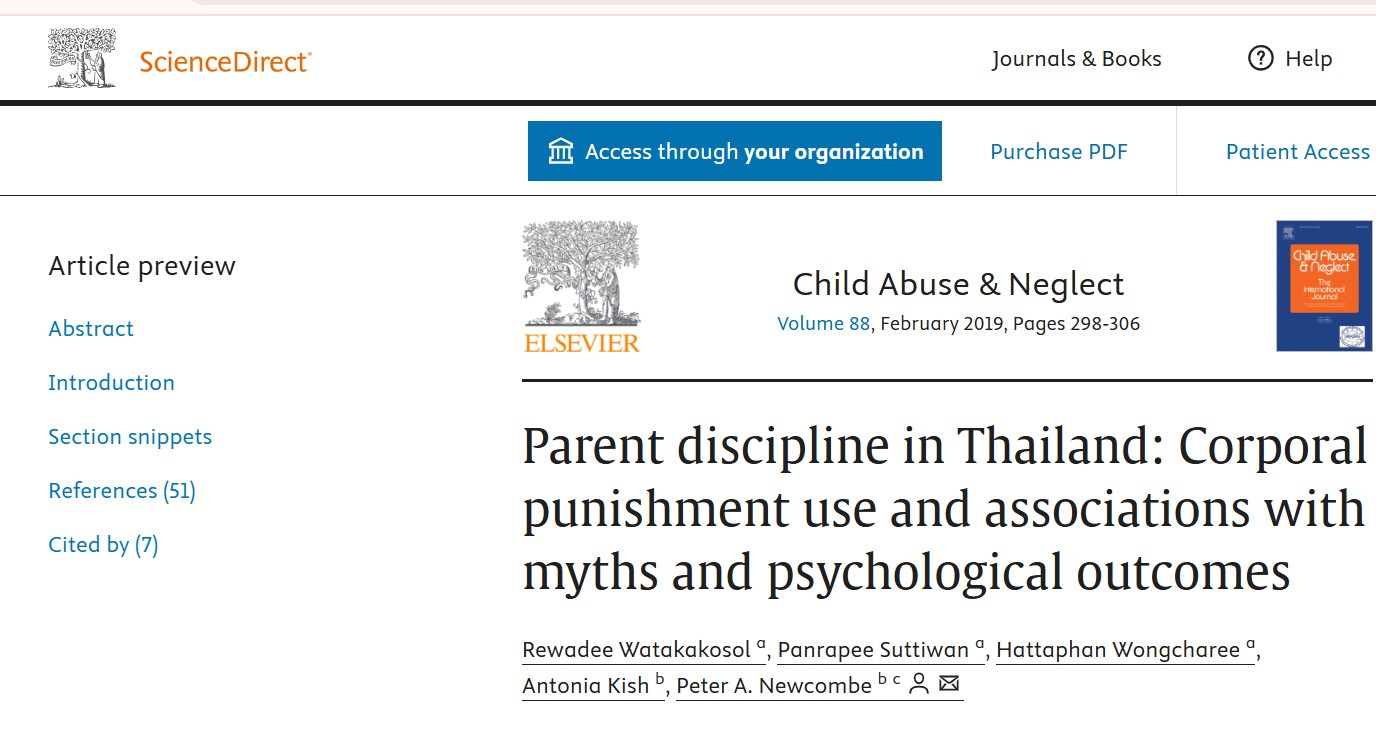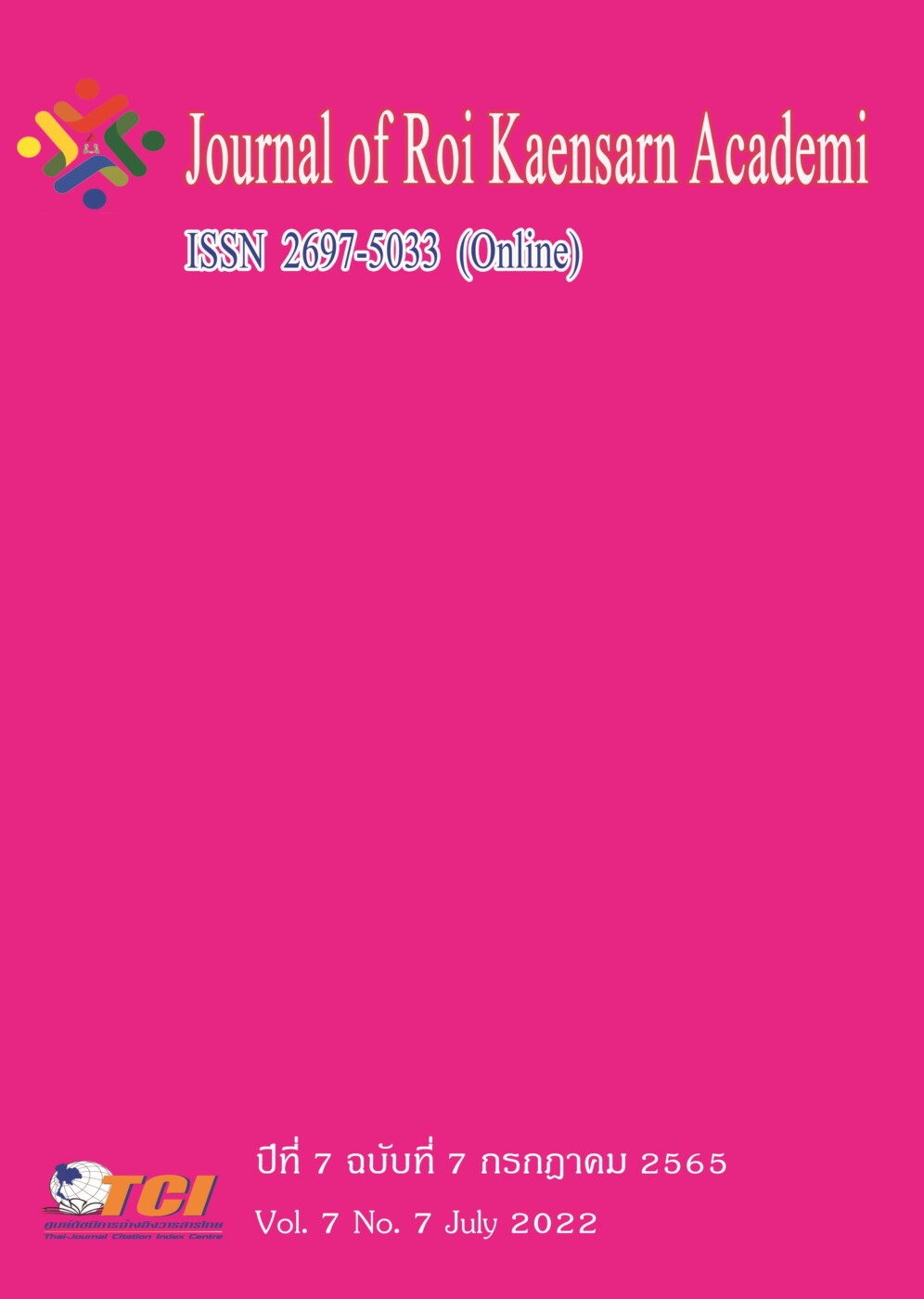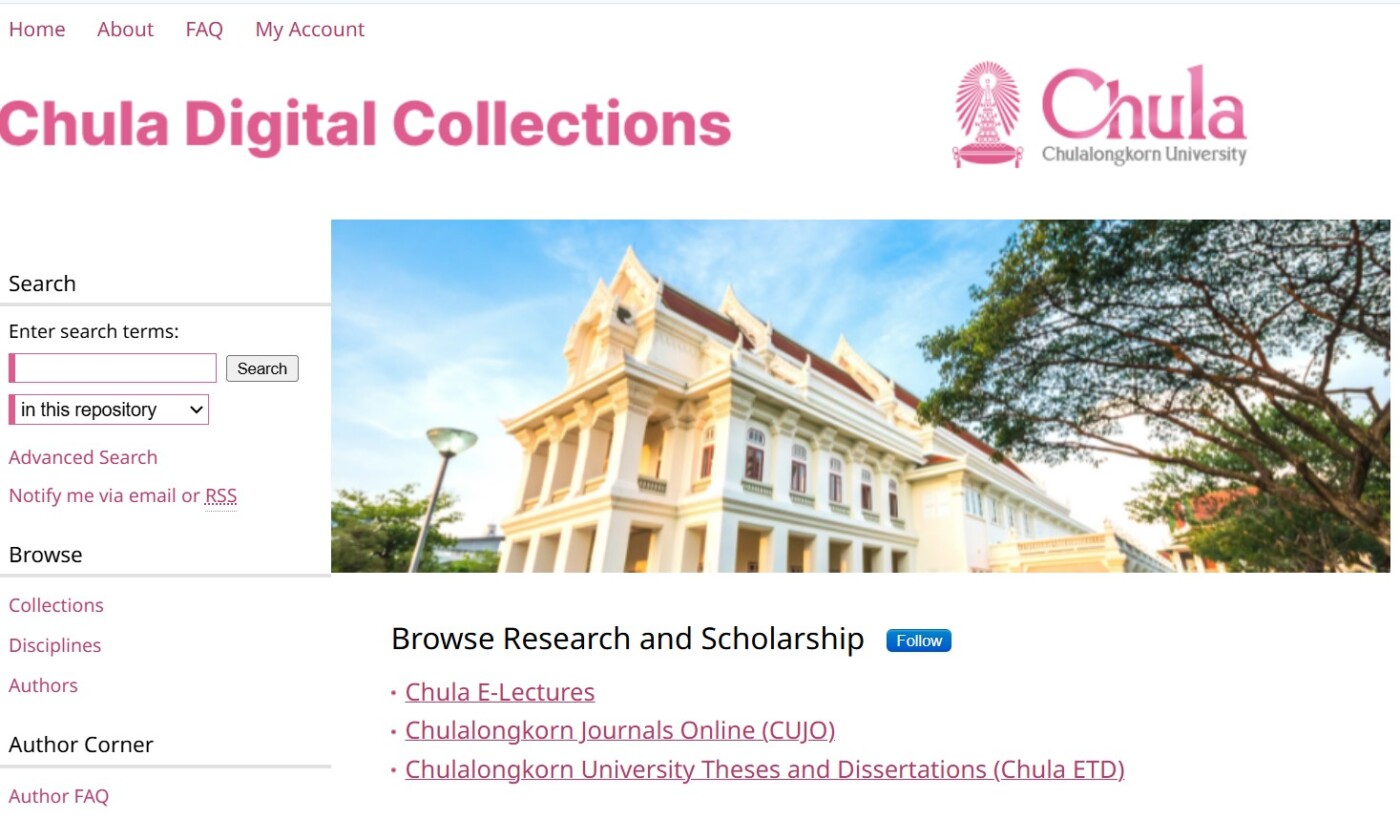Abstract
Every child has the fundamental right to protection from physical punishment in all settings. However, physical punishment remains common in Thai families, at home, in schools, and in other environments. Cultural beliefs and values may play a role in the persistence of this practice. This study aims to examine the use of physical punishment in Thai households. In addition, it seeks to explore young adults’ retrospective views on parental use of physical punishment, and its associations with psychological characteristics and the acceptance of certain misbeliefs that may contribute to the continued use of such disciplinary methods.
The sample consisted of 250 young adults (mean age = 20.26 years, SD = 1.19), who reflected on their parents’ disciplinary strategies around the age of 10. Participants also completed the Personality Assessment Questionnaire (Rohner, 1999), the Corporal Punishment Myth Scale (Kish & Newcombe, 2015), and responded to hypothetical parenting scenarios involving children's misbehavior.
Overall, 80.4% of participants reported having experienced physical punishment at around age 10, with a lifetime prevalence rate of 85.5%. Experiences of physical punishment were associated with poorer psychological outcomes in young adulthood. Furthermore, misbeliefs about physical punishment were found to predict a greater likelihood of endorsing such disciplinary strategies in hypothetical parenting scenarios. The findings are discussed within the context of Thai cultural values and beliefs, highlighting the need for further evidence to inform policy and legal reform efforts.
Author Raywadee Watakoson, Panrapee Suthiwan, Tathaphan, Wongcharee Anthonia Kith, Peter A newcom.
Methods: การศึกษาแบบภาคตัดขวาง (Cross-sectional study)
Journal Science Direct
Year: 2019
For more information please click; https://www.sciencedirect.com/science/article/abs/pii/S0145213418304460?via%3Dihub




